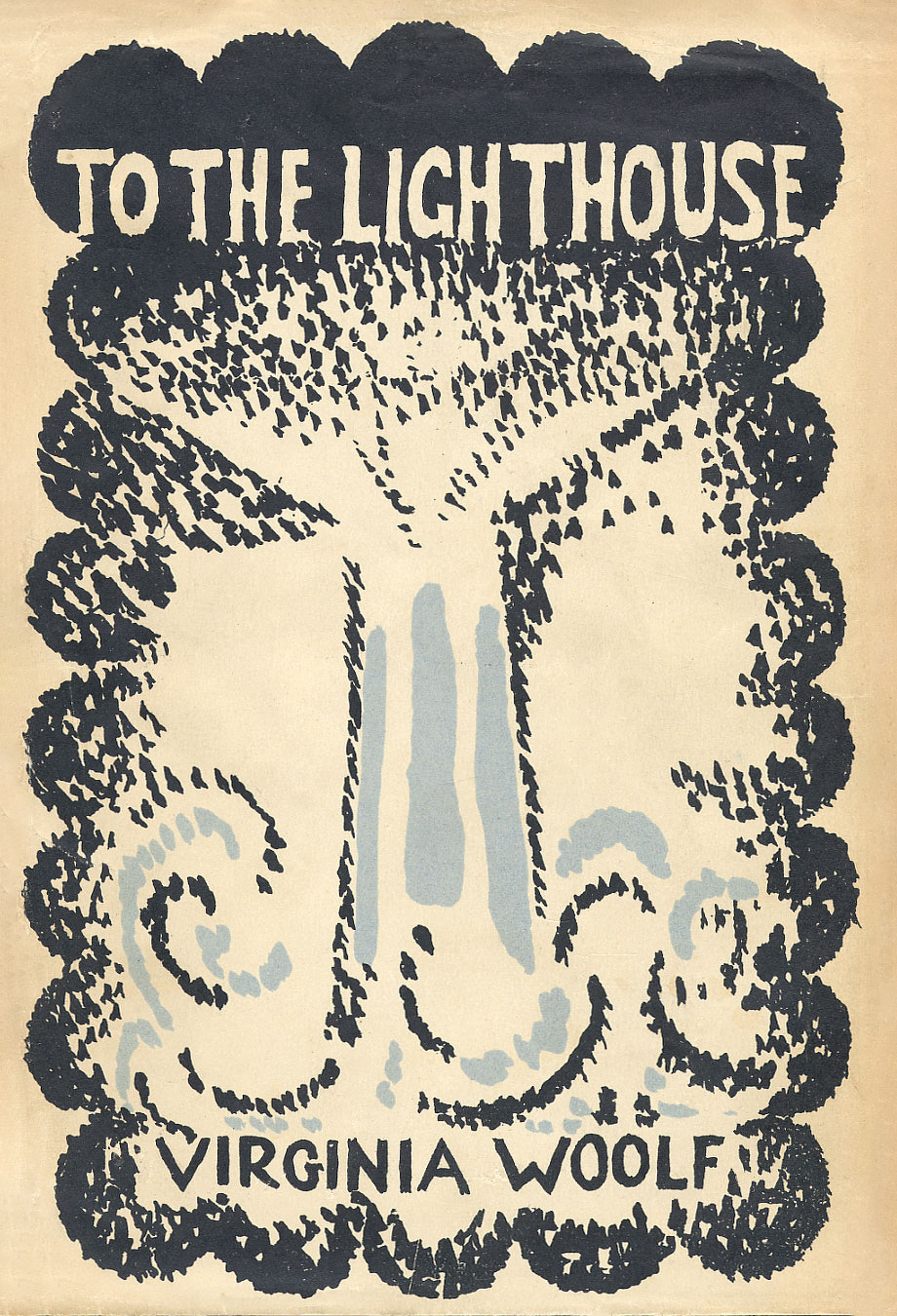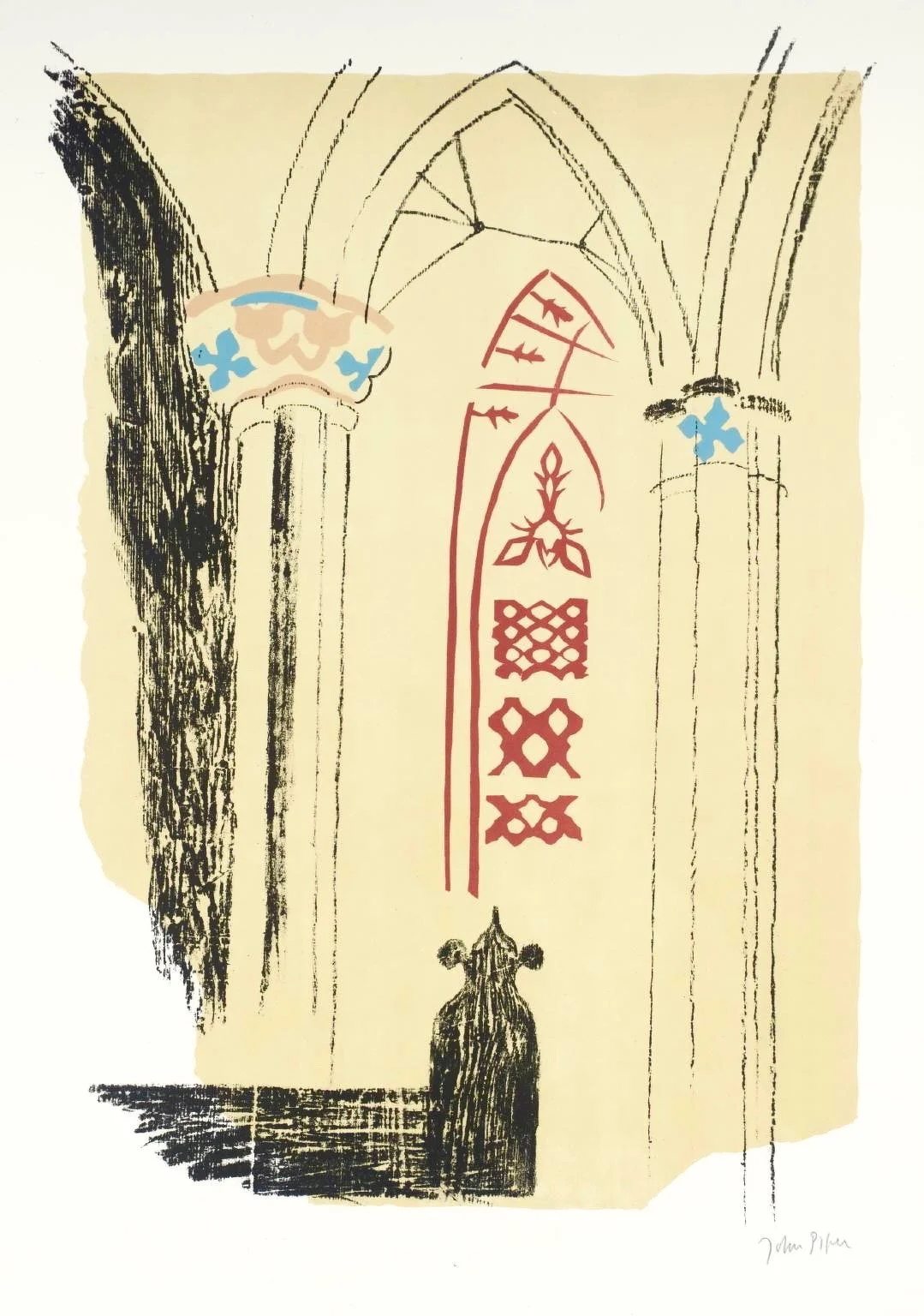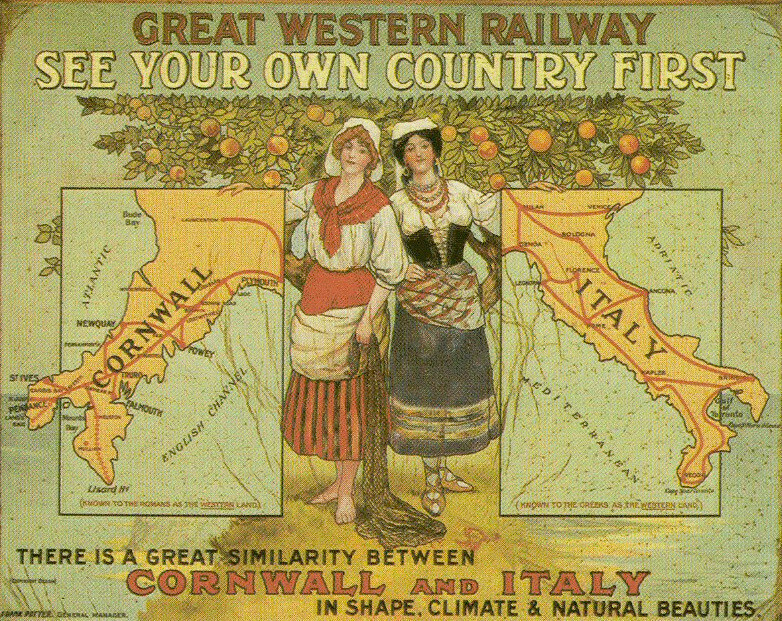Cover of the first edition of To the Lighthouse (1927), designed and drawn by Woolf’s sister Vanessa Bell.

John Piper, Llan-y-Blodwell, Shropshire 1964

In art, I argue, process matters as much as product.
In his famous 2021 essay, “Moore’s Law for Everything,” [Sam] Altman made the following grandiose prediction:
“My work at OpenAI reminds me every day about the magnitude of the socioeconomic change that is coming sooner than most people believe. Software that can think and learn will do more and more of the work that people now do. Even more power will shift from labor to capital. If public policy doesn’t adapt accordingly, most people will end up worse off than they are today.”
Four years later, he’s betting his company on its ability to sell ads against AI slop and computer-generated pornography.

Finished reading: Yeah! Yeah! Yeah! by Bob Stanley. The first half is brilliant; then, starting around 1970, the pace picks up and Stanley’s attention starts to grow variable. There’s a bit of a British tilt: though he knows that country, and later alt-country, are important, he doesn’t have much to say about them — Gram Parsons, one of the most lastingly influential musicians of the last half-century, goes wholly unmentioned. Also, he is quite dismissive of Joni Mitchell; and inexplicably, given his British vantage-point, he has next-to-nothing to say about Led Zeppelin. Reading this book, you’d think that Marc Bolan was far more important than Zep. All that said, I learned a great deal from the first half of the book, and hope soon to make a playlist of cool & unusual songs Stanley mentions. 📚
I don’t know what makes a good social media network, but I do know what makes it so that when they go bad, you’re not stuck there. You and I might want totally different things out of our social media experience, but I think that you should 100 percent have the right to go somewhere else without losing anything. The easier it is for you to go without losing something, the better it is for all of us.
This is why I’m on the open web.
Two questions:
-
Do I want to read/watch/listen to this?
-
Should I read/watch/listen to this?
When I was younger the second question often dominated my decision-making. Now that I am officially ancient that question has virtually disappeared and the first one is usually the only one I ask. That’s been the single most notable change in my personality in these my declining years.
Why does Scott Alexander devote 30,000 words to examining the Fatima Sun Miracle? Because “if the God of Fatima exists, we are in deep trouble.”
Abstraction is the enemy wherever it is found. The abstractions of sustainability can ruin the world just as surely as the abstractions of industrial economics. Local life may be as much endangered by “saving the planet” as by “conquering the world.” Such a project calls for abstract purposes and central powers that cannot know, and so will destroy, the integrity of local nature and local community.
In order to make ecological good sense for the planet, you must make ecological good sense locally. You can't act locally by thinking globally. If you want to keep your local acts from destroying the globe, you must think locally.
An endlessly apt reminder. Berry goes on to say,
The right scale in work gives power to affection. When one works beyond the reach of one's love for the place one is working in, and for the things and creatures one is working with and among, then destruction inevitably results. An adequate local culture, among other things, keeps work within the reach of love.
Berry was thinking about the physical world, of course, but what he says applies to online life as well: the scale of social media is such that it cannot promote love, so “destruction inevitably results.” We need “ecological good sense” for our online lives also.
Just recently I posted on how great a record Black Messiah is — and now I learn that D’Angelo has died. An absolutely unique artist — who knows what he might have done had he been given more time.
And this by Matthew Aucoin is equally illuminating:
The writer of a newspaper-style review of a live performance is typically asked to experience a work of art only once and then to craft a coherent assessment of it, often in under twenty-four hours. The more one thinks about it, the more it seems like this process, with its frantic timeline, might be the worst of all possible worlds.
Why, then, this perpetual demand that performing arts critics make definitive proclamations about works they barely know? If the performance being reviewed is a program of Beethoven symphonies that the writer has heard a hundred times, that’s one thing, but a brand-new orchestral piece, opera, or play rarely reveals its secrets on the first night. I’ve spent countless hours listening to music, and never once have I encountered a worthwhile new piece that I felt capable of assessing after a single hearing. If a musical work is powerful, or mysterious, or beautiful in some new way, then the listener’s initial experience of it is precisely an experience of incomprehension. It’s only with time, reflection, and repeated listenings that any critic can hope to gain entry to a piece of music, to get inside it and understand its inner workings, in such a way that they’re ready to speak about it to others.
The great Jed Perl with an important insight:
Much if not most of what is today thought of as criticism is just nonfiction writing with a distinctive personal voice, attitudes and opinions without any underlying idea. My impression is that among younger nonfiction writers the central focus is on developing that distinctive voice, with less focus on what’s actually said. Janet Malcolm and Dave Hickey, whose work apprentice writers in BA and MFA programs are likely to encounter, are striking essayists who leave you in no doubt as to who they are and what interests them, but neither of them has what I would call an aesthetic position. Malcolm produced a kind of personal reportage, with readers invited and expected to be alert to the sharp edges of her personality. As for Hickey, although his writings about the return of beauty have made him something of a hero in the art world, I think what people really respond to in his writing isn’t what he thought about art but the battle-tested hipster personality that he cultivated in all his work, whether relating with wonderful panache stories of his childhood and his jazz musician father or the years he spent as an art dealer or his hours hanging out with artists and art students. Talking about art or writing about your experiences in the arts isn’t the same as being a critic of the arts.
In response to some emails I’ve received, I wrote my own little “Dear Colleague” letter.
I wrote a short post on a much-misused passage from Plato.
This is a carbonized loaf of bread recently discovered in Anatolia, probably from the 7th or 8th century A.D., that depicts Jesus as a sower. The Lord of the Harvest!



